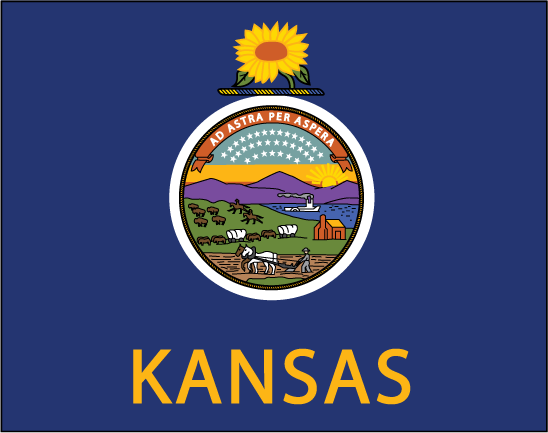With the crisis over, the Governor sought to prevent recurrence of trouble. In 1920 an extra session of the legislature was called and the Court of Industrial Relations was organized. In this court was vested the power to control strikes and to fix a minimum wage for the miners. Its establishment the first attempt at compulsory arbitration in the United States drew the attention of the Nation to Kansas (see INDUSTRY, COMMERCE AND LABOR). The court was abolished by the State legislature in 1925.
Under the administration of Governor Jonathan M. Davis, a bonus of $25,000,000 was distributed to exservice men in 1923. The following year the Ku Klux Klan, nationwide in its scope, threatened the political, racial, and religious freedom of the State and brought William Allen White into the race for Governor on an antiKlan platform, a gesture described by the Kansas City Star as "one of those successful failures through which civilization edges forward."
In 1930, Dr. John R. Brinkley entered the gubernatorial race and, under stress of depression conditions, was almost elected. His candidacy came from a desire for vindication. On September 17, 1930, his license was revoked by the Kansas State Medical Board on charges of quackery and malpractice in his hospital at Milford; five days later he announced his candidacy for Governor. During his campaign, he promised free text books, free medical clinics, hundreds of miles of paved roads, and a free lake in every county, with no increase in taxes.
During Governor Alfred M. Landon's administration a cash basis law was passed in 1933, putting the State on a "pay-as-you-go" policy. Governor Landon's successful administration under this law, and his reelection in 1934 as the only Republican State executive elected west of the Hudson River, led to his nomination as the Republican candidate for the Presidency in 1936. Kansas, however, returned a plurality of more than 60,000 for President Franklin D. Roosevelt and elected its fifth Democratic Governor, Walter A. Huxman, of Hutchinson.
Kansas has weathered many calamities and earned its motto, "To the Stars through Difficulty." Internal strife at once tragic and fantastic ravaged the State in its early decades. Blizzards, droughts, floods, and grasshopper plagues brought death and destruction. But progress has been steady. Where once roamed the Indian and the buffalo, there are now orchards and vineyards, dairy farms, and endless fields of wheat, corn, and alfalfa. The vest pocket village, with its lone towering grain elevator and general store, is the meeting place for farmers who live miles apart. The radio and the automobile has rescued him from isolation. Broad ribbons of concrete criss cross the prairies, and the trains of 17 great railway systems steam through the State. Packing plants, flour mills, and mines give employment to thousands of workers. Oil derricks point skyward, and huge power houses churn out electricity. Remedial measures, carried out cooperatively by Federal, State, and local agencies, are solving the three-fold problem of flood, drought, and soil depletion.

